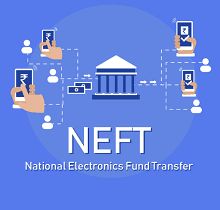Bank-to-bank electronic funds transfer in India mainly occurs through National Electronic Fund Transfer (NEFT). The implementation of NEFT by the Reserve Bank of India has made money transactions easier, faster, and much more efficient. However, while transferring money using NEFT, one must consider the NEFT fund transfer charges applied by banks. Knowing how you can effectively minimize these charges can lead to significant savings, and this article will guide you on how to do just that.

The NEFT fund transfer charges can vary from one bank to another; generally, the fee ranges from Rs. 2.50 to Rs. 25 for transactions within India. Furthermore, there might even be GST charges applied on top of the basic transfer fee.
One practical method that can be employed to minimize NEFT fund transfer charges is by planning your transactions wisely. Banks usually charge you depending on the size of the transaction. Therefore, if possible, make fewer transactions but in larger amounts, instead of multiple small transactions.
Additionally, different banks have different service charges. Therefore, you should weigh your options and approach a bank that provides services at a relatively lower cost. Banks often revise charges for NEFT fund transfers, so it is essential to stay updated about your bank’s current charges and policies.
The Indian Government announced the removal of charges for transactions through NEFT and Real-Time Gross Settlement (RTGS) system to promote digital transactions. However, it is up to the banks whether they pass on this benefit to their customers or not. Therefore, selecting a bank that waives off these charges will be a smart move in minimizing your NEFT fund transfer charges.
Many banks, especially online banks, offer several free NEFT transactions per month or per quarter, and anything over that attracts fees. If you have this facility available in your bank, you can organize your transfers in such a manner as not to exceed the limit of free transfers.
Some banks even offer special zero-charges account types, like salary accounts or privileged customer accounts. So, if you maintain these types of accounts, you may be eligible for free NEFT transactions.
Moreover, subscribing to digital banking can also help. Some banks may offer lower NEFT fund transfer charges or even free transfers for those who use mobile banking or net banking facilities. This initiative is taken to promote digital transactions and reduce the use of paper-based instruments like cheques. Check your bank’s digital banking policies and take advantage of those to reduce charges.
If your bank charges for NEFT services during certain hours of the day, try making your transactions during non-peak hours. For instance, certain banks waive off charges for NEFT transactions done early in the morning or late at night when their systems are not as busy.
Many banks also offer zero charges to senior citizens and physically challenged customers. So, if you fall into that category, make sure you avail yourself of those concessions after verifying the bank’s policies.
Finally, the most effective method of all – negotiation. As a customer, you have the right to negotiate with bank officials to reduce or even waive off NEFT charges, especially if you are a long-standing customer or hold significant accounts or investments with the bank.
While NEFT transfer has undoubtedly made our lives easier in terms of transferring funds, the charges associated often become a sizable fee annually if not checked or negotiated properly. The tips shared above should help you minimize them and make your transactions more efficient and cost-effective.
In This Digital Era
where online transactions have become more common than ever before, managing, and lowering your NEFT fund transfer charges can not only save a considerable sum of money but also give you peace of mind knowing that you are transacting in the most cost-effective manner. Thus, stay aware, stay informed, and choose the most optimal method of transaction to minimize your NEFT fund transfer charges effectively.